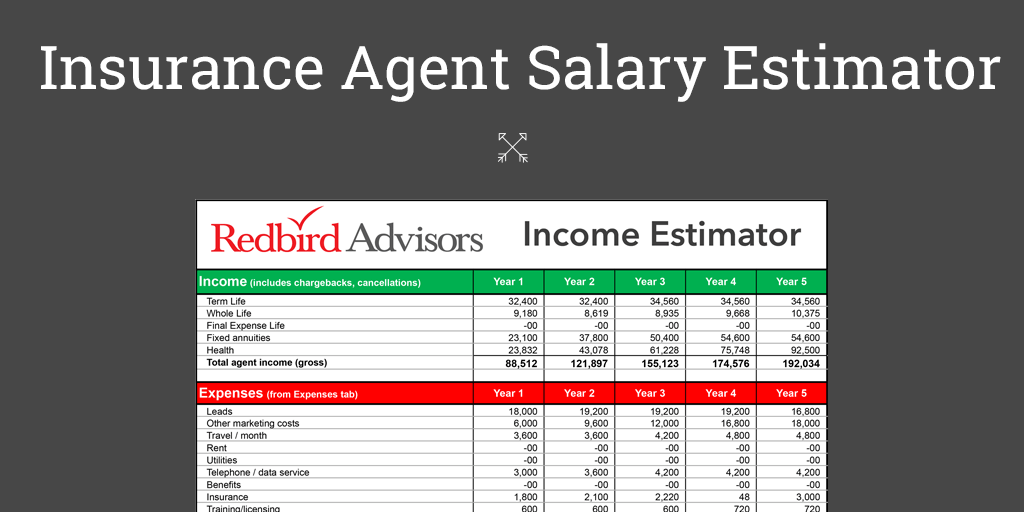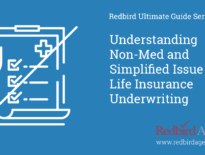
What if I told you that the key to writing more commercial business was to focus your attention on one of the lowest commission lines of coverage?
You would probably laugh, right?
Many agent’s think the key to cross selling is adding additional lines such as life and health insurance. Yes, I agree those are great products for commercial insurance agents to cross sell, but I’m talking about your lead product… we can discuss cross selling on another day.
Lead with the work comp and you will win big.
Work comp should be treated as a priority, not a commodity. In fact, work comp is the only policy where the insured has 100% control. The insured pays $3 in premium for every $2 the insurance carrier pays on a claim.
And, almost every agent prospect I meet with has been handling their work comp process entirely wrong.
How do most companies bid work comp?
They put it out to bid every year or every few years to get what they think will be a better price.
But, according to the Institute of Work Comp Professionals, 60% of businesses are being overcharged on their work comp. Let me say that again: 60%!
And this has nothing to do with their current rates.
So, if that’s not enough to convince you that insureds have issues with their work comp, then maybe these stats will help drive this point more:
- 30-45% of EMODS (experience modification rate) are incorrect,
- 75% of work comp audits are incorrect, and
- 80% of EMODS are mis-managed.
Rather startling numbers, huh?
So how do you use these to your advantage and drive the wedge between the insured and their current agent for you to win the new business?
Four Elements of Selling Work Comp
- Discovery Conversations
- Validation
- Business Improvement
- Injury Management
First, you need to stop discussing work comp with your insureds and prospects as a policy and start addressing it as their work comp program. There is more to work comp than just the carrier, rates and coverage.
That in fact is one of the last things to discuss with them.
The first thing you need to do is conduct a corporate diagnostic check-up for their work comp program.
If they aren’t willing to do this, then simply move on as they are not a fit. You’ll end up doing nothing more than providing a quote instead of being an advisor. You might win the account based on a low quote, but quoting machines get fired, Trusted Advisors don’t.
Establish yourself as the expert you are and do not deviate from the necessary steps to properly help a business understand its exposed risks. They are expecting that from you by agreeing to give you a shot at an appointment to sell them a new work comp policy.
Topics to discuss in your corporate Diagnostic Check-Up:
- State Requirements
- Claims Management
- Recover at Work Program (Return-to-work)
- Audit Process
- EMODS
- Hiring
- Compliance (OSHA, Etc.)
Let’s break these down to a more granular level:
Work Comp State Requirements
This is extremely important as every state has different guidelines for work comp. If you’re selling in multiple states, do your homework before getting a seat at the table with a well-educated business owner.
See all work comp state guidelines here.
Understanding Work Comp Claims Management
Here you are focusing on trying to find out what their current plan is when an employee is injured.
Do they have a medical clinic that they have vetted out that they strictly use for all injuries or at least ones they recommend? This depends on the state you are in and the laws they have in place for this.
In some states, the insureds can or must direct where the injured employee should go, while other states can do nothing more than suggest, and it is the injured employee’s choice of where to go.
As a commercial insurance agent, you’re looking to see how they handle return-to-work to set up for a deeper discussion later. You start to engage them on how versed they are on the impact an injury will affect their experience modification rate (EMOD).
Specifically, you are looking to find out their policy and procedures for reporting injuries.
Try to find out how much and how often they are actively getting updates on unresolved injuries. This is also where you try to find out how actively they are trying to prevent injuries.
If you ask the right questions, they will tell you everything you need to know.
Below are some questions to help you uncover more claims information during the work comp sales process.
- Have you been able to reduce the amount (reserve) the insurance company expects to pay your injured employees this year?
- How often do you receive a narrative abut unresolved employee injuries?
- Please share a few details about your current incident prevention program.
- Do you know the process your insurance carrier uses to audit the correctness of medical bills?
Recover at Work
This part is usually a big eye opener to most commercial clients, even ones that currently have a return-to-work program.
We find that most employers that have a return-to-work program don’t have the best one. If they are in an ERA (Experience Rating Adjustment) state, you will want to:
- Engage with them about their knowledge of how much the indemnity part of a claim will affect their EMOD, and
- See if they fully understand the fact that a claim is reduced by 70% on their emod for medical only claims.
You want to find out if they have a medical provider that they use for work comp injuries and that they have fully informed them of their return-to-work program. There is really no reason the insured should not have a position designated for any type of injury, even if the person is required to remain off his or her feet and remain at home. These employees can do all sorts of odd jobs from the comfort of their home such as filing, answering emails, etc.
At the very least it will help them cut down the indemnity cost of the claim which will still have a positive effect on their EMOD. You need to find out if they make this part of their employee orientation so every employee knows the procedures and what will be required if an injury occurs.
Work Comp Audit Process
Chances are the insured hates their work comp audits already. But that’s probably because they have never had a process in place for it.
You need to ask what their current process is for their audits. You need to find out if they prepare for the audit ahead of time to control the path of the audit or if they let the auditor control the path it takes (of course its in their favor for them to control it).
You should ask for job descriptions of all employees. I realize that this might not be plausible for companies with a lot of employees, so in that case you need get breakdown of each area, department or division and see if any employees switch between multiple divisions. Later you will want to call NCCI (most common rating bureau for most states) or whatever rating bureau their state uses to get the proper class codes. You will also want to find out if they are aware of the 16 or so categories that can be excluded from the renumeration (again this varies by rating bureau).
Also, find out what their plan is to dispute an incorrect audit. Last year alone I got over $225,000 of audit premium reduced from my clients’ incorrect audits.
EMOD
What is an EMOD?
An EMOD is a short term for experience modifier or when used in context, an experience modifier factor.
This factor can be eye opening information for your commercial clients.
Ask if they know what their current EMOD is and then ask if they know what their minimum EMOD is. The minimum is the lowest EMOD they could possibly obtain. Also ask if they know how to confirm if their EMOD is 100% correct.
Find out if they have ever received a report that shows how much each injury impacts their EMOD and impacts their premium over the next three years (this can be done with a couple different computer programs such as ModMaster and CompImpact).
Hiring
You will want to focus on how important the hiring of employees can affect injuries.
- Are they hiring an injury waiting to happen? Is the person you are hiring even physically capable for the open position?
- Do they have written job descriptions complete with essential job functions?
- Do they offer conditional offers of employment based on the outcome of a physical?
Compliance
This portion mainly deals with OSHA:
- Do they have all government required posters in place?
- How are they handling their electronic filing of their OSHA 300’s?
- Do they currently have their OSHA 300 ready if OSHA comes knocking on the door today?
- How do they currently stay up to date on OSHA updates?
- Could their employees show you where their MSDS sheets are located?
When this is done, now come the toughest question. You need to ask them that if you both agree that you are a business fit, are they prepared to tell the current agent they must make a change?
This Diagnostic Check-Up will help you drive a wedge between them and their current agent. It will show many the many weaknesses of their current agent.
Now, of course, you must have the correct tools in place to help them fill these gaps in their Work Comp Program. You can implement these by a couple different ways:
- You can outsource these to companies that specialize in risk management, OSHA compliance company, etc.
- The other option is to develop an in-house solution. Personally, I like to do a combination of both.
What’s great about the combination approach is that it allows you to earn the business a couple different ways. If the insured “loves their current agent” you can simply let them know that you can handle their work comp and the other agent can still handle the rest of the account. The beauty in this is when you implement a new program and they start to see results it will allow you the opportunity at a later date to take the remainder of the account because the insured will start to see how much their current agent was mishandling their insurance program.
Or the insured will happily give you the rest of the account because they already see how their current agent has failed them. I have had this happen both ways.
Conclusion
Expert commercial insurance agents are experts on their lowest commission line of business to help their agency or book grow leaps and bounds. Often that is workers compensation.
As workers compensation is one of the lowest commissionable products, your competition often overlooks it and leaves you some wiggle room to get a seat at the table with the decision maker.
If you can blow the prospects mind on how they were mismanaging their work comp, you better believe you’ll get their business, and they will spread the news to their professional network.
About the Author: We recently added Stephen Sedlak with Schmale Insurance to our team of contributors to help provide detailed training content. Stephen holds a CIC and CWCA certification and is currently a partner with Schmale Insurance Agency, specializing in workers compensation.


